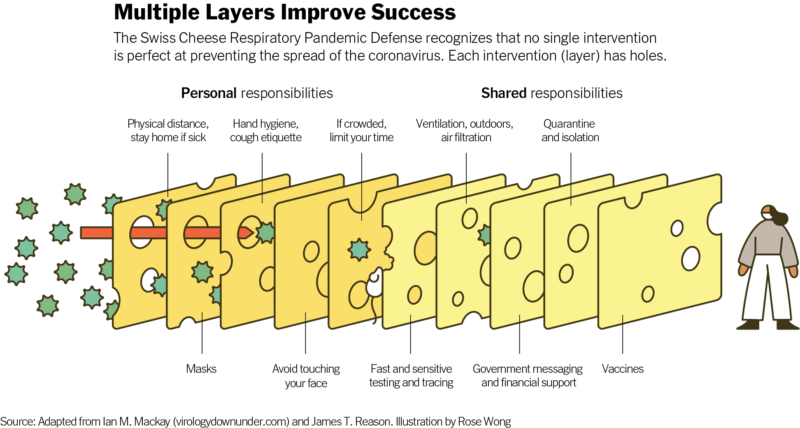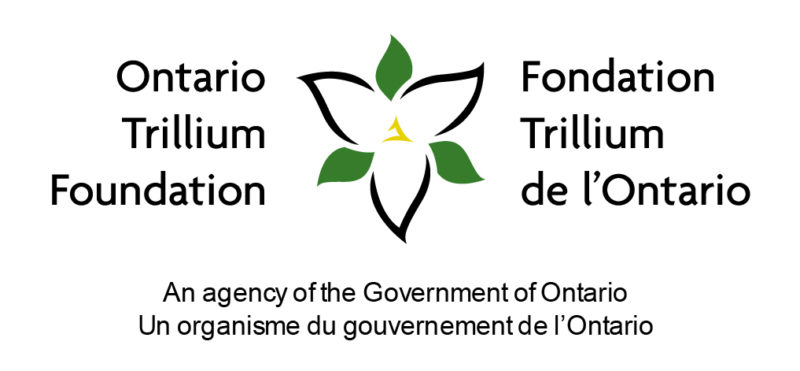
Key Learnings from Re-Opening Your Orchestra, 2021
COVID-19 Health & Safety Planning for Small Budget Orchestras (Resilient Ontario Orchestras)
On Wednesday, September 15th, 2021 Orchestras Canada welcomed performing arts health and safety expert, Janet Sellery CRSP, CHSC of Sellery Health + Safety along with John Kraus and Marie Narini from the Northumberland Orchestra & Choir, and Daniel Warren from the Kitchener-Waterloo Community Orchestra for a session on safe re-opening.
The session is part of Orchestras Canada’s Resilient Ontario Orchestras project, funded by the Ontario Trillium Foundation.
In the first part of the session, Janet presented the fundamentals of COVID-19 health and safety planning for orchestras and shared two template documents that she developed for smaller budget Ontario orchestras (based on Ontario’s Step 3 of the Roadmap to Reopening regulations).
- The first document, “COVID-19 Safety Background and Planning,” provides background information and planning guidance for developing a COVID-19 Workplace Safety Plan.
- The second document, “COVID-19 Workplace Safety Plan,” is presented as a customizable template, and is based on relevant Ontario regulations and background information.
DISCLAIMER:
These documents are designed to assist your orchestra with COVID-19 health and safety planning based on requirements in Ontario as of September 15, 2021. However, it is the responsibility of your organization to update and adapt these documents based on your own specific risks and circumstances, in accordance with current, local public health requirements
Janet’s Powerpoint (Sept 15, 2021) is available here.
After presenting her templates, Janet hosted a candid panel discussion with John, Marie, and Daniel about their orchestras’ learnings, challenges, “silver linings,” and approaches to communication as they worked on their health and safety plans.
Our Key Take-Aways?
1. Offer volunteers the same level of protection as employees
If you have one or more paid employees in Ontario your organization must comply with the Occupational Health and Safety Act. Janet emphasized the importance of offering the same protections to volunteers, freelancers, and contract workers under the OHSA, and clearly stating so in your orchestra’s COVID-19 health and safety plan. Volunteers are valuable members of your organization — they also deserve a safe environment to work and play in.
2. Just because you can rehearse or perform with minimal precautions, doesn’t mean that you should
Your group is legally required to follow all of the regulations set out by the province, but your optimal health and safety plan may go above and beyond – particularly if your orchestra is comprised of people in demographics at higher risk for COVID-19, such as the elderly or immunocompromised.
Janet’s advice is to “Choose activities you can reasonably accomplish safely” and “Plan for multiple layers of controls (precautions) and lean towards more cautious choices”. She shared the illustration below, with multiple layers of COVID-19 safety precautions represented as slices of Swiss cheese – each layer has holes, but they’re remarkably effective when combined.

3. Your plan needs to be as unique as your organization
Each orchestra is unique, and so too should be your health and safety plan. The speakers discussed the differences and similarities between NOC and KWCO: NOC is both a community orchestra and a choir, and that entails special planning considerations around safe singing. Attitudes of playing members and audiences may also differ, based on the community’s experience of the pandemic. The KWCO is based in Kitchener-Waterloo, an urbanized area with a population of 571,000 that’s reported almost 19,500 COVID-19 diagnoses; the NOC serves Northumberland County (population: 86,000) in a region that’s reported just over 2400 COVID-19 diagnoses during the pandemic.
No matter where you are, though, it’s important to stay in touch with your local public health authorities and consider the public health situation in your area as you develop your own health and safety plans. The templates that Janet created from her work with both NOC and KWCO can be customized by your group to reflect your own organization’s needs and circumstances (and you should customize them!).
4. Ask and listen with kindness
Janet proposes that you “consider surveying your members (ideally anonymously) and, for young people, their families, to understand their comfort levels and preferences”. She notes that “There will be a range of concerns, feelings, and individual vulnerability. Keep conversations respectful, especially if there is disagreement.” Marie and John echoed this point, reflecting on the value of fostering a community where each member feels heard and can discuss disagreement freely and respectfully. Daniel noted that some folks may feel extra cautious about returning, even when others are ready. If a regular member of the KWCO isn’t willing to return yet, KWCO has committed to filling their positions on a temporary basis only. There’s a place for them when they are ready to return.
5. Go for clear and frequent communication with all stakeholders
Your communications strategy should be multi-pronged with ongoing touchpoints. Section 2 of Janet’s COVID-19 Workplace Safety Plan template suggests communications protocols for orchestra members, volunteers, and patrons, to ensure everyone stays up to date and on the same page.
Although KWCO’s venue is not yet open to the public (thus, fall rehearsals are on hold), Daniel noted how helpful it is to have detailed planning documents in writing to demonstrate that your group is ready to go when the time is right. KWCO emailed performers an update on COVID-19 health and safety planning in early September and will continue to provide updates as information becomes available. John and Marie agreed that robust COVID-19 health and safety plans help demonstrate readiness to return – they’ve shared theirs with their venue (a church) and will be presenting it at their upcoming AGM. Both groups also communicate regularly with their communities through Facebook pages, keeping connections and information flowing while apart.
NOC put their COVID-19 health and safety plan into action for the first time in early September during their Choral Director auditions. Marie headed the process, which included online COVID-19 pre-screening and notifying attendees of NOC’s double vaccination requirement in addition to the on-site precautions outlined in their health and safety plan. They were pleased with how smoothly everything went with robust measures in place that were clearly communicated in advance.
Conclusion
Orchestras Canada thanks Janet, Marie, John, and Daniel for sharing their time and insight with us on September 15. We are also very grateful to the Ontario Trillium Foundation for their generous support of these learning opportunities through the Resilient Ontario Orchestras project (more information below). Stay tuned for more information about future Resilient Ontario Orchestras webinars for small budget and youth orchestras this fall!
Resource list
Sept. 15 Presentation Materials:
Janet’s Powerpoint (September 15, 2021, Janet Sellery)
COVID-19 Safety Background and Planning (updated September 15, 2021, Janet Sellery)
COVID-19 Workplace Safety Plan (updated September 15, 2021, Janet Sellery)
Q&A Responses from Speakers (September 21, 2021)
Resources – COVID-19 Vaccination Policies in Ontario:
Update: Ontario Vaccine Pass – A summary by Ben Coleman (September 14, 2021)
Ontario to Require Proof of Vaccination in Select Settings (September 1, 2021, Government of Ontario)
New Requirement for Proof of Vaccination in Certain Settings: Frequently Asked Questions (September 1, 2021, Government of Ontario)
COVID-19 vaccines and workplace health and safety (August 25, 2021, Government of Ontario)
COVID-19 Vaccination and Workplaces (August 30, 2021, Hamilton Public Health)
- Developing a COVID-19 vaccination policy for your workplace
- Key components of a workplace vaccination policy
- Vaccination and Workplaces: Frequently Asked Questions
Mandatory Vaccinations, Rapid Testing, Screening, Record Retention and the Law (May 27, 2021, Gowling WLG)
The Resilient Ontario Orchestras Project:
This event was the first in this fall’s series of on-line learning opportunities inspired by the Resilient Ontario Orchestras project, funded by the Ontario Trillium Foundation. The Resilient Ontario Orchestras project is designed to help Ontario’s smaller budget orchestras and youth orchestras (groups with annual, pre-pandemic revenues under $500,000) access customized consulting help and resources to help them plan for a sustainable return to public performances as soon as it’s viable.
This project is made possible with generous support from the Ontario Trillium Foundation. The Ontario Trillium Foundation (OTF) is an agency of the Government of Ontario, and one of Canada’s leading granting foundations. OTF awarded $108 million to 629 projects last year to build healthy and vibrant communities in Ontario.

